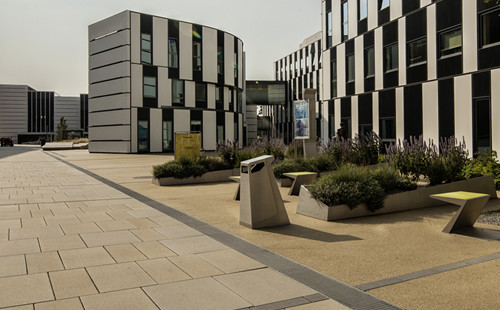International Marketing Management - PhD Seminar and Qualitative Paper Development Workshop
What is this course about?
The seminar will give doctoral and Ph.D. students working with qualitative research methods the opportunity to present one of their research projects, discuss it with a friendly, knowledgeable audience, and advance it towards a top journal submission. Students from all academic fields are welcome to participate.
The seminar will be held in the format of a 2½-day mini conference held with experienced qualitative consumer researchers from WU Vienna, Prague University of Business and Economics (Czech Republic), the University of Innsbruck (Austria), and the University of St. Gallen (Switzerland). The 2025 seminar will be hosted by the University of Innsbruck and take place from the 27th to the 29th of March 2025. The costs for accommodation and most meals in Innsbruck will covered by an international exchange grant.
Participants are invited to bring academic papers at various stages of development to the seminar. Each stage is associated with a different development goal:
Early-stage projects have a preliminary research question, a literature overview that is broad enough to ensure that the question has not been fully answered yet and include some educated thoughts about how to approach the subject with empirical (qualitative) methods. The goal of joining this seminar with an early-stage project is to get feedback and hands-on regarding the viability of the idea, identify appropriate research methods, and discuss interesting theoretical approches.
Mid-stage projects come with a well-defined research question, a reasonably well-structured literature review, and a methods section. Students that join the seminar with a mid-stage project will also have collected some qualitative data and be able to present and discuss them, yet without having fully analyzed or theorized them. The goal of participating with mid-stage projects is to discuss and refine theoretical perspectives, discuss empirical data and preliminary insights, and gather ideas for interpretation and theorization.
Submission-stage projects are almost ready for a first submission to a journal or a conference. Students joining with such articles will present the entire project, from introduction through literature review, theories, methods, and findings to contributions and put it to a critical debate. The goal of participating with submission-stage projects is to explore whether and how the study could, should, or must be refined for a promising first submission. Although it may seem detrimental, it is an excellent idea to have an almost finished paper thoroughly critiqued because it shows students where small (or larger) changes might be necessary to increase the likelihood of publication.
Conceptual projects at a mid- or submission-stage of development, such as systematic literature reviews or purely theoretical papers, are equally welcome. They do not require the same types of methods and findings sections than empirical papers nor do they involve empirical data collection. However, these types of projects still require rigorous approaches, thinking, and writing. The goal of participating with non-empirical projects is to explore how consistent and compelling the proposed contributions are, identify gaps in the argumentation or literature considered, and discuss potential refinements with the audience.
Why should you take this course?
This research seminar provides a forum for doctoral and Ph.D. students to interact with fellow students and faculty from different universities and different fields of inquiry. It will allow participants to strengthen their abilities in developing academic articles, presenting in academic environments, discussing ideas with others and of others, and interacting with junior and senior researchers from other fields and universities in a friendly, collaborative environment. The international faculty members that will contribute to this seminar are interpretive consumer researchers. This will set a certain focus, but should not deter students from other fields from participating.
After completion of the seminar, participants will have enhanced their ability to:
understand the characteristics of interesting research topics,
develop interesting, concise, and realistic research questions,
craft systematic literature reviews,
develop suitable empirical research designs,
explore theoretical perspectives to make sense of empirical data and/or inductively develop new concepts,
discuss theoretical contributions and practical recommendations of their work,
critically evaluate limitations of their research and propose new research questions, and
present academic ideas, theories, findings, and contributions with confidence.
What do students think about this course?
...
